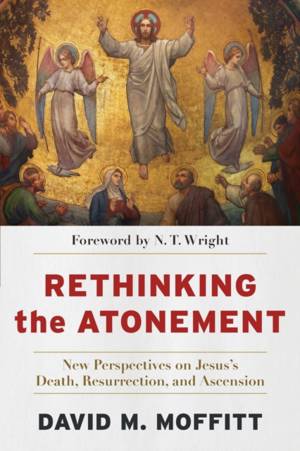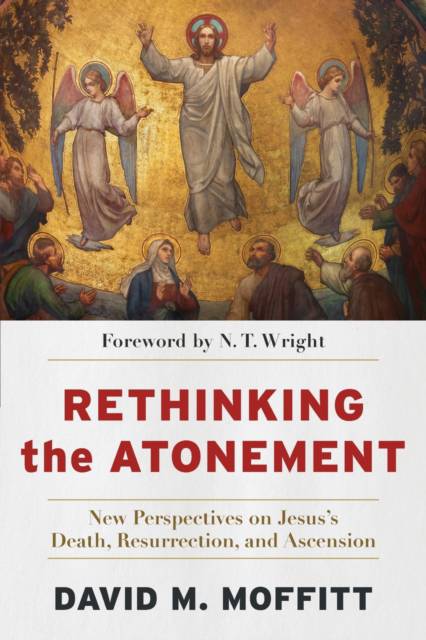
- Afhalen na 1 uur in een winkel met voorraad
- Gratis thuislevering in België vanaf € 30
- Ruim aanbod met 7 miljoen producten
- Afhalen na 1 uur in een winkel met voorraad
- Gratis thuislevering in België vanaf € 30
- Ruim aanbod met 7 miljoen producten
Zoeken
Rethinking the Atonement
New Perspectives on Jesus's Death, Resurrection, and Ascension
David M Moffitt
Paperback | Engels
€ 62,45
+ 124 punten
Omschrijving
Traditional views of the atonement tend to be reductive, focusing solely on Jesus's death on the cross. In his 2011 groundbreaking book Atonement and the Logic of Resurrection in the Epistle to the Hebrews, David Moffitt challenged that paradigm, showing how the atonement is a fuller process. It involves not only Jesus's death but also his resurrection, ascension, offering, and exaltation.
In the succeeding years, Moffitt has continued to expand and clarify his thinking on this issue. This book offers a more fulsome articulation of his work on the atonement that reflects his recent thinking on the topic. Moffitt continues to challenge reductive views of the atonement, primarily from the book of Hebrews, but he engages other New Testament passages as well. He offers fresh insights on sacrifice and atonement, the importance of resurrection and ascension, Jesus's role as priest, and a new perspective on Hebrews.
This important book brings Moffitt's award-winning and influential scholarship to a broader audience. The book includes a foreword by N. T. Wright.
In the succeeding years, Moffitt has continued to expand and clarify his thinking on this issue. This book offers a more fulsome articulation of his work on the atonement that reflects his recent thinking on the topic. Moffitt continues to challenge reductive views of the atonement, primarily from the book of Hebrews, but he engages other New Testament passages as well. He offers fresh insights on sacrifice and atonement, the importance of resurrection and ascension, Jesus's role as priest, and a new perspective on Hebrews.
This important book brings Moffitt's award-winning and influential scholarship to a broader audience. The book includes a foreword by N. T. Wright.
Specificaties
Betrokkenen
- Auteur(s):
- Uitgeverij:
Inhoud
- Aantal bladzijden:
- 320
- Taal:
- Engels
Eigenschappen
- Productcode (EAN):
- 9781540966230
- Verschijningsdatum:
- 15/11/2022
- Uitvoering:
- Paperback
- Formaat:
- Trade paperback (VS)
- Afmetingen:
- 150 mm x 226 mm
- Gewicht:
- 408 g

Alleen bij Standaard Boekhandel
+ 124 punten op je klantenkaart van Standaard Boekhandel
Beoordelingen
We publiceren alleen reviews die voldoen aan de voorwaarden voor reviews. Bekijk onze voorwaarden voor reviews.











